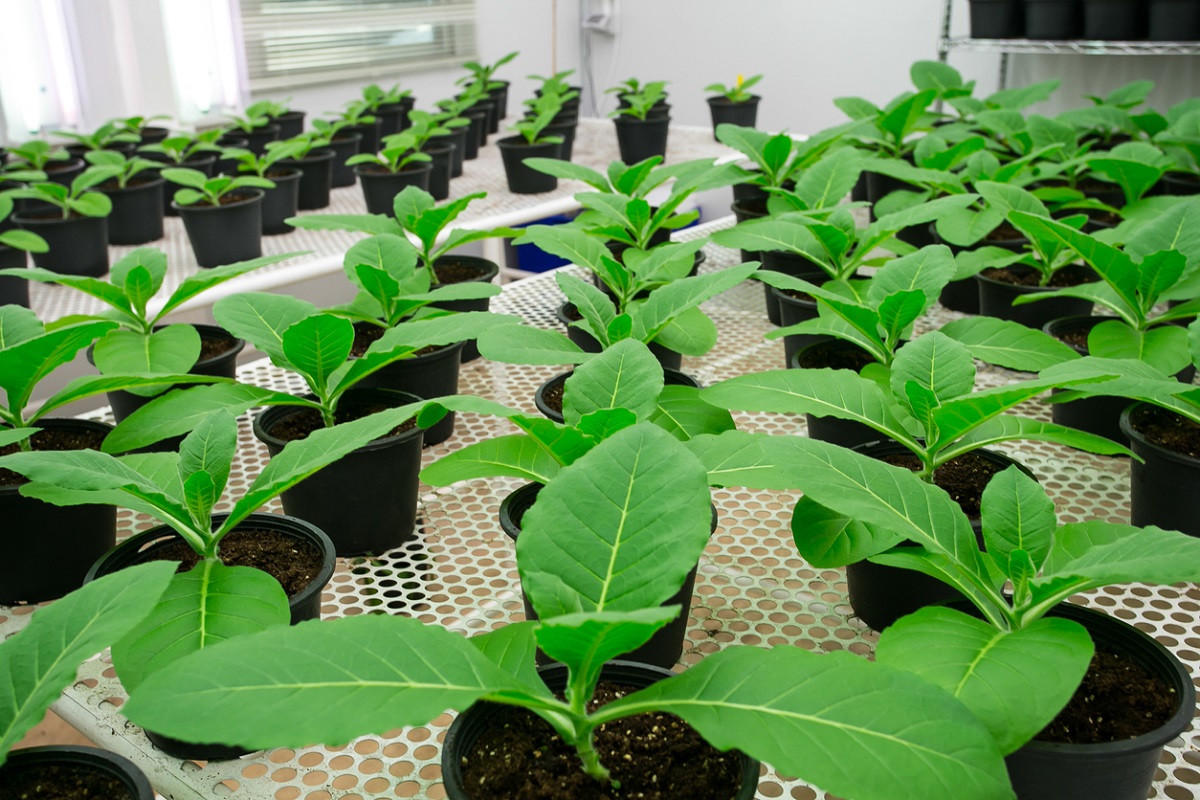
Scientists Successful in Obtaining Heritable Gene Targeted Events In Tobacco
February 3, 2021| |
In a bid to discover how to maximize the tobacco plant's potentials as bio-factories, an international team of scientists investigated which CRISPR technology was more efficient in incorporating two herbicide resistance modifications simultaneously in the tobacco' SuRB gene. The results not only exhibited which CRISPR technology was more efficient, but that it was also possible to inherit gene-targeted modifications.
Tobacco (Nicotiana tabacum) is a plant often considered for use as a bio-factory in generating medicines and vaccines, while the CRISPR-Cas nuclease technology allows the induction of site-specific double-strand breaks for better homologous recombination-mediated gene targeting. Considering that gene targeting technology continues to be enhanced by replacing SpCas9 with other CRISPR-Cas-based nucleases, the scientists decided to test SaCas9 and a temperature-insensitive ttLbCas12a using tobacco plant to target the SuRB gene using an optimized protocol for Agrobacterium-mediated tobacco transformation and tissue culture.
The scientists found that ttLbCas12a outperformed SaCas9 in terms of gene targeting efficiencies by up to a third of the inoculated cotyledons. They recorded that the conversion tract length of the gene targeting reaction can stretch to over 250 bp long, and they were also able to obtain multiple heritable heterozygous and non-T-DNA integrated biallelic gene target events in tobacco. This is the first time that researchers are able to obtain CRISPR-Cas-based heritable gene-targeted events in tobacco.
Read the full methodology in Plant Biotechnology Journal.
| |
You might also like:
- COVID-19 Vaccine Development Using New, Fast-Growing Tobacco Plant Technology
- Native Australian Plant Paves Way for Vaccine Development Against COVID-19
- GM Tobacco Plants to Produce Industrial Proteins
Biotech Updates is a weekly newsletter of ISAAA, a not-for-profit organization. It is distributed for free to over 22,000 subscribers worldwide to inform them about the key developments in biosciences, especially in biotechnology. Your support will help us in our mission to feed the world with knowledge. You can help by donating as little as $10.
-
See more articles:
-
News from Around the World
- ISAAA Report on Global Adoption of GM Crops in 2019 Now Available
- GM Mosquitoes Key to Stopping Zika Virus Spread
- Scientists Discover A New Tool to Immediately Detect Bitterness in Almonds
- Researchers Work on Making Wheat and Peanuts Less Allergenic
- Golden Rice Could Supply Up to 50% of the Average Daily Requirement of Vitamin A
- Punjab Seed Council Approved Two New Bt Cotton Varieties
-
Research Highlights
- Team Effort Produces High-Quality Reference Genome Sequence of Switchgrass
-
Plant
- UCalgary Produces High-Yielding Gene Edited Canola
- Scientists Successful in Obtaining Heritable Gene Targeted Events In Tobacco
- TALEN Beats CRISPR-Cas9 in Editing Tightly-packed DNA
- Gene-edited Canola Shows Resistance to White Mold
-
Health
- Unraveling Coronavirus Structure for Effective Vaccine and Medication
-
Read the latest: - Biotech Updates (February 11, 2026)
- Gene Editing Supplement (January 28, 2026)
- Gene Drive Supplement (February 22, 2023)
-
Subscribe to BU: - Share
- Tweet

